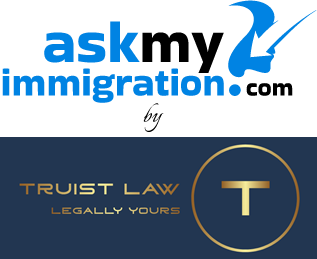Services List
- E-1 Visa
- E-2 Visa
- E-3 Visa
- EB-1 Visa
- EB-2 Visa
- EB-3 Visa
- EB-4 Visa
- EB-5 Visa
- F-1 Visa
- H-1B Visa
- K-1 Visa
- J-1 Visa
- L-1A Visa
- L-1B Visa
- M-1 Visa
- O-1 Visa
- P Visa
- R-1 Visa
- TN Visa
- Asylum & Deportation
- Citizenship by Investment
- Employer Sponsored Green Card
- Green Card Renewal
- Green Card Through Marriage
- National Interest Waiver
- Naturalization
- Perm. Labor Certification
- Reentry Permit
- Refugee Travel Document
Related Downloads
The H-1B visa is a temporary work visa that allows foreign professionals to work in the United States for a specific period of time. It is a non-immigrant visa that is commonly used by employers to hire skilled foreign workers in specialty occupations.
Eligibility Requirements for H-1B Visa
To be eligible for the H-1B visa, you must meet the following requirements:
Specialty Occupation: You must have a job offer from a U.S. employer for a specialty occupation. A specialty occupation is defined as one that requires a bachelor’s or higher degree in a specific field of study.
Education or Experience: You must have the necessary education or experience to perform the job duties of the specialty occupation. This can be demonstrated through a bachelor’s or higher degree in the specific field of study, or equivalent work experience.
Employer Sponsorship: Your employer must file an H-1B petition on your behalf, and you must be sponsored by the employer throughout the duration of your stay in the U.S.
Prevailing Wage: Your employer must pay you the prevailing wage for the occupation in the geographic area where you will be working.
Application Process for H-1B Visa
To apply for the H-1B visa, you must follow these steps:
Employer Files Labor Condition Application (LCA): Your employer must file an LCA with the U.S. Department of Labor (DOL), which certifies that your employment will not adversely affect the wages and working conditions of similarly employed U.S. workers.
Employer Files Form I-129: Your employer must file Form I-129, Petition for Nonimmigrant Worker, with U.S. Citizenship and Immigration Services (USCIS), along with the certified LCA.
Wait for Approval: USCIS will review the petition and either approve or deny it. If approved, you can begin working for your employer on the start date listed on the petition.
Apply for Visa: Once the petition is approved, you must apply for an H-1B visa at a U.S. embassy or consulate in your home country.
Attend Interview: You must attend an interview at the embassy or consulate, where you will be asked questions about your eligibility for the visa.
Obtain H-1B Visa: If your application is approved, you will be granted an H-1B visa, which is typically valid for three years and can be extended for up to six years.
Benefits of H-1B Visa
The H-1B visa provides several benefits to those who are eligible, including:
Opportunity to Work in the U.S.: The H-1B visa allows foreign professionals to work in the United States, which can provide valuable experience and opportunities for career advancement.
Ability to Bring Family Members: H-1B visa holders can bring their spouse and unmarried children under the age of 21 to live with them in the U.S.
Possibility of Permanent Residency: H-1B visa holders may be eligible to apply for permanent residency in the U.S. through an employment-based green card.
Transferable: H-1B visas are transferable, meaning that if an H-1B visa holder finds a new job with a different employer, they can transfer their visa to the new employer.
Dual Intent: H-1B visa holders can have dual intent, meaning that they can apply for a green card

